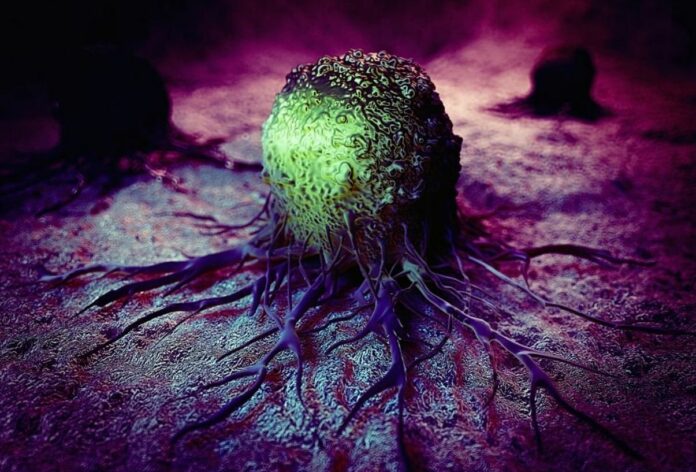The presence of residual cancer cells from previous treatments serves as a source from which future resistant cells can emerge. These findings provide a promising approach in which experts can target the residual cells with initial, effective therapies in order to eliminate them.
A research team at The University of Texas MD Anderson Cancer Center has discovered that CD70 is highly expressed on drug-resistant cancer cells in EGFR-mutant non-small cell lung cancer (NSCLC), uncovering a potential new therapeutic target.
This new insight could aid in eliminating resistant cells that persist after treatment with EGFR tyrosine kinase inhibitors (TKIs), which are commonly used drugs.
The study was published in the journal Cancer Cell.
The preclinical research was headed by Monique Nilsson, Ph.D., and John Heymach, M.D., Ph.D., Chair of Thoracic/Head and Neck Medical Oncology, who served as the corresponding author.
CD70, a cell surface protein typically produced by immune cells, was shown to be significantly overexpressed in both TKI-resistant cells and remaining cancer cells.
In laboratory models, they revealed that CD70 might be an effective target for these cells when combined with antibody-drug conjugates (ADCs) or cell treatments.
According to Heymach, the residual cancer cells that remain after treatment with TKIs serve as a breeding ground for future resistant cells. These findings provide a promising opportunity to attack these residual cells with a two-pronged approach, by first administering initial effective therapies followed by drugs that target CD70, which could eradicate the residual cancer cells.
In between 10% and 15% of NSCLC patients, EGFR mutations are present. While the majority of cancer cells are killed by EGFR TKI therapy, a small subset of drug-resistant cancer cells survive. For extended periods of time, these cells may lie dormant or even undetectable, yet ultimately they develop and spread.
Epithelial-to-mesenchymal transition is one of the processes through which tumor cells might develop resistance to EGFR TKIs (EMT). When tumors go through EMT, they become resistant to most known drugs. This makes the outlook for relapsed patients bad and shows how important it is to figure out how this acquired resistance happens.
An integrated investigation of cell surface proteins in treatment-resistant NSCLC cells helped the study’s researchers identify CD70. Further research indicated that the remaining drug-tolerant cells also overexpressed CD70, indicating that elevated CD70 is a precursor to the development of resistant illness.
“It was really encouraging,” remarks Nilsson, “to discover that CD70 was upregulated at such an early point in the evolution of drug resistance because it means we can target these cells quickly without needing to wait for them to develop full resistance.”
On the basis of this finding, the scientists showed that CD70 may be utilized to successfully target these cells in vitro and in vivo. In laboratory models, anti-CD70 ADCs, CD70-targeting CAR T cells, and CAR natural killer (NK) cells all shown considerable anti-tumor effectiveness, eradicating drug-resistant remaining cells.
While the focus of this research was lung cancer, CD70 is overexpressed in a variety of other cancers, including breast, pancreatic, ovarian, kidney, and melanoma.
Heymach posited that the lessons learnt from EGFR inhibitor resistance could be relevant to other tumor types that ultimately develop EMT or other sorts of treatment resistance mechanisms, beyond only those with the aforementioned mutations.
The authors note that CD70-based therapy options are already in clinical trials for other cancers; the next step is to adapt these methods for use in this illness.
Image Credit: Getty
